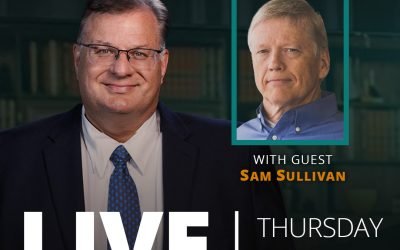The demand currently on the lips of youthful mobs and their academic enablers is “Defund the Police”, a catchy phrase that encapsulates both the innocence and ignorance of the young and the sinister intent of those who will use any crisis to bring down capitalism and liberal democracy.
While there may be some virtue in encouraging the constabulary to be less trigger-happy, every adult knows that if you remove the threat of state-sanctioned violence to enforce the rules, you undermine any hope of maintaining peace, order, and public hygiene. People are not, despite the pious platitudes of the Enlightenment philosophers, born good, and experience tells us that Thomas Hobbes was right in describing human life outside of the constraints of society as “solitary, poor, nasty, brutish, and short.”
That does not mean, however, that sensible folk should let this moment of political disruption go by without enacting some salutary cleansing of our institutions. So let me suggest that instead of taking money away from police departments, we defund departments of the social sciences and the cadres of university administrators.
Universities once saw themselves as places where the truth could be sought, free from outside interference, whether that meddling came from the church, the government, or commercial interests. This was at the very foundations of the creation of these institutions in the Middle Ages and was behind the creation of tenured employment for academics in the modern era. In the 21st century, however, post-secondary education has fallen into the hands of activists who have abandoned any pretence of scholarly objectivity and career administrators who tremble before Twitter mobs.
A few examples should stimulate some critical thinking on this dilemma.
It is a truth universally acknowledged that any department with the word “Studies” in its title is merely a front for social justice warriors to preach their brand of snake oil to credulous students. There is no intellectual diversity in these areas; all ideology has been agreed in advance and all research is conducted to buttress the a priori convictions.
So, in “Native” or “Indigenous Studies”, one must not look for unbiased examinations of reality but rather a set of activists “privileging an Indigenous perspective”, “exposing the lies of the self-serving colonial academic institutions,” “bolstering the rights and obligation to disobedience” and “defense of the Indigenous principles of sovereignty and nationhood,” using methods and theories in a way “that benefits Native people and/or communities”.1 Expect the same sort of bias in Whiteness Studies, Women’s Studies, Fatness Studies, etc.
Very well, you might say, scholarship is twisted to a particular political end – but surely it is of a high standard and worth the billions of dollars that Canadian taxpayers, parents, and students pump into the system annually. Alas, one cannot always count on that.
The social sciences seem to have increasingly become a playground for expensive navel-gazing and preposterous theorizing of no use to anyone except as a way to rack up publication credits. Consider the phenomenon of “auto-ethnology” or SPN (Scholarly Personal Narrative) where intellectuals publish articles about their feelings. Behold an abstract of an article entitled “Dwelling With Wildflowers: Qualitative Inquiry as Life-Living and Life-Giving”:
Here in this short piece, I reconsider qualitative inquiry based on my chance encounter with a buttonhole flower. This encounter offered me an opportunity to explore not only my relationship with vegetal life, but also how dwelling with wildflowers allows one to reconceptualize qualitative inquiry as a practice of life-living and live-giving that emerges from a logic of conviviality. Practicing qualitative inquiry as life-living and life-giving serves as a means to unmoor our practices of inquiry from the abstraction of re-presentation and the predicative logic on which this is based, and to offer instead a conceptualization of inquiry as a process of dwelling with/in the world, and in this togetherness, experience (the potential of) life.
If you have any idea what that means, drop me a line on a postcard. You might win a copy of William Wordsworth’s poem “Daffodils” about much the same subject.
Autoethnology can lead not just to a piece about flowers in a sketchy academic journal, it might get you a doctorate from the University of Regina. That’s what happened in 2016 to Amanda Lyn Baldwin, who identified as a “white-settler, obese, bisexual, middle class cis-female graduate student in Canada” and author of a dissertation entitled “Self-Storying To (De)Construct Compulsory Heterosexuality: A Feminist Poststructural Autoethnography of a Self-Wedding Ritual”.
What story did Ms. Baldwin tell “to open up, trouble, disrupt and interrupt the figuring of the bride in hopes of (re)signification and new practices of the female and feminine self for the writer”? She married herself and was awarded a doctorate in Education for telling us about it.
I could go on and give you further stories of the trifles that today’s academics produce — Feminist Glaciology, Mathematics as Whiteness, Disabled Gay Porn Studies, Celebrity Studies – but one’s digestive tract can only take so much. 
Let us ask ourselves instead what happens if an academic challenges the current orthodoxy? Suppose someone is so bold as to suggest (and I blush even to type these shocking words) that there are only two biological sexes, what would the result be? If we judge by recent actions at the University of Alberta and the University of British Columbia, a professor would be dismissed from a service role or the faculty association would insist that no one has the right to speak on such a topic on campus.
As provincial governments and universities confront the financial catastrophe that is the COVID-19 plague, as they search for economies to be made in post-secondary education budgets, perhaps this article might suggest a few targets.
Defunding faculties of education and social sciences and thinning the ranks of craven administrators would be a good start.
Endnotes
- Chris Andersen and Jean M. O’Brien, eds., Sources and Methods in Indigenous Studies
Gerry Bowler is a senior fellow at the Frontier Centre for Public Policy.
Photo by Loïc Fürhoff on Unsplash



